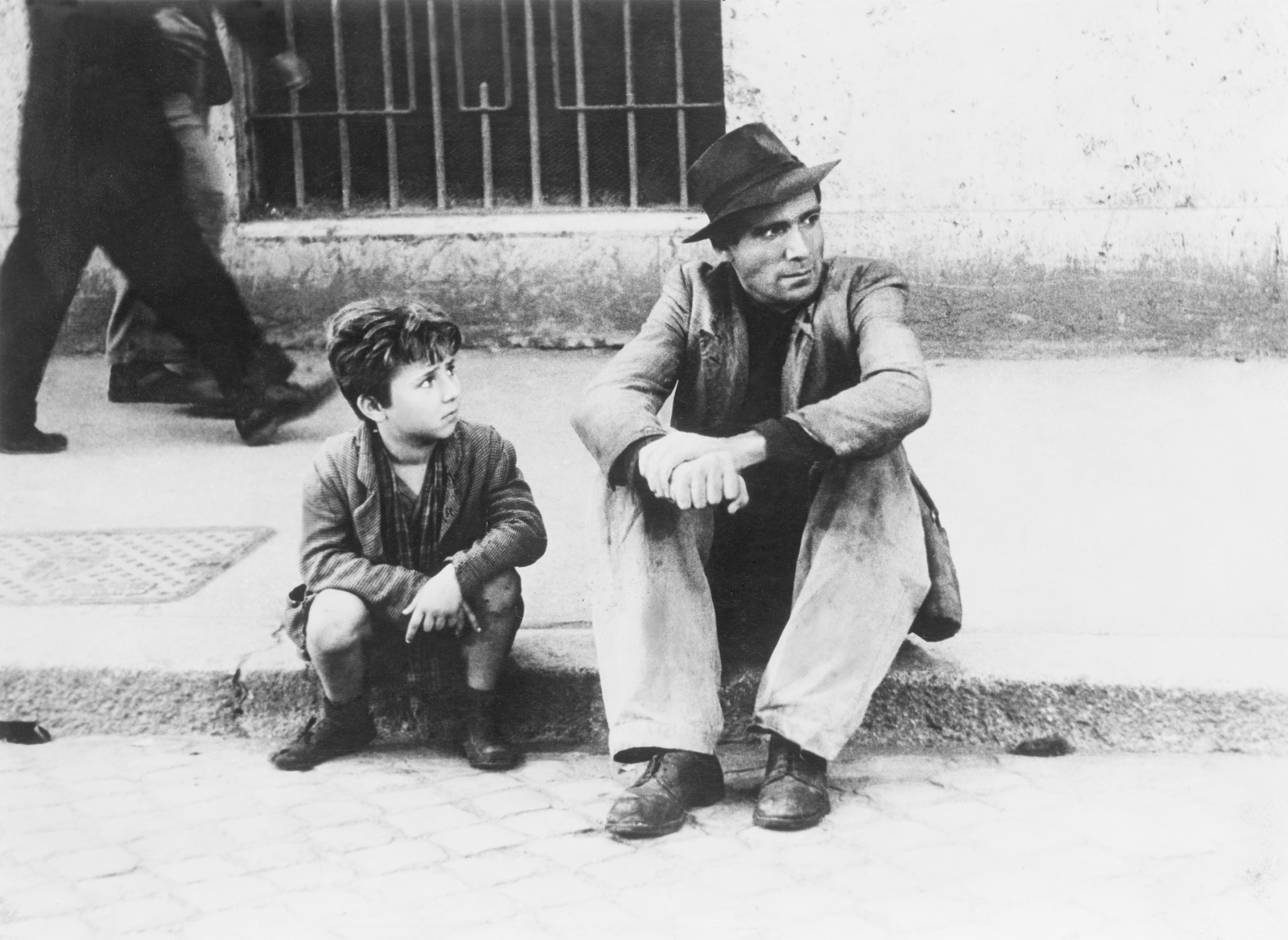
- Golden Globe Awards
1950: “The Bicycle Thief” Heralds International Focus

In the room devoted to a Spike Lee exhibit at the Academy Museum of Motion Pictures, which opened to the public in 2021, there hang three posters of movies that inspired the lauded director: Breathless (1960), by Jean-Luc Godard; Seven Beauties (1975), by Lina Wertmüller; and The Bicycle Thief (1948), by Vittorio De Sica.
The Bicycle Thief was the very first movie to win a Golden Globe as Best Foreign Language Film, in a ceremony held February 23, 1950, in the Embassy Room of the Ambassador Hotel, the 1950 Golden Globes. One month later, the movie would be honored with an Academy Honorary Award.
In 1955, the Foreign Language Film category (now Best Non-English Language Film) became a yearly feature at the Golden Globes, after the original Hollywood Foreign Correspondents Association (HFCA), founded in 1943, and the splinter group, the Foreign Press Association of Hollywood (FPAH), which staged separate awards in 1951, 1952 and 1953, reunited. Following jointly held ceremonies on January 22, 1954, at the Club Del Mar in Santa Monica, and February 24, 1955, at the Cocoanut Grove in the Ambassador Hotel, the two organizations officially merged into the Hollywood Foreign Press Association (HFPA) on October 19, 1955.
A masterpiece of Italian neorealism, The Bicycle Thief was shot in real locations in the streets of Rome with nonprofessional actors. Adapted by Cesare Zavattini from a 1946 novel by Luigi Bartolini, it chronicled one day in the frantic search of a poor family man and his young son to locate his stolen bicycle, which he desperately needs for work, after managing to secure a difficult-to-find job posting advertising bills in impoverished, post-war Italy.
Condemned upon its 1948 Italian release by the newspaper of the Catholic Church, L’Osservatore Romano, and even by some leftist critics for focusing on individualism and not class struggle, the movie was praised by French film theorist André Bazin as “one of the first examples of pure cinema. De Sica and Zavattini have definitely brought neorealism from the resistance to the revolution.”
In 1991, Los Angeles Times critic Kenneth Turan wrote: “The Bicycle Thief registers as a testament to a country left barren in the aftermath of fascism and World War II.” Pauline Kael called it “one of the greatest films of all time.”